Search Results
Showing results 1 to 20 of 146

The Geophysical Light/Dark Cycle
Source Institutions
This is an activity (located on page 131 of the PDF) related to sleep and circadian rhythms as well as space travel.
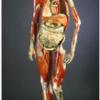
Body Parts
Source Institutions
In this online game, learners test their knowledge of human anatomy.
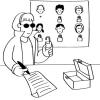
Public Key Encryption: Kid Krypto
Source Institutions
In this activity, learners conduct a simulation exercise related to public key encryption and try to intercept a message sent between two learners.

Glaciers
Source Institutions
In this online activity, learners adjust mountain snowfall and temperature to see how glaciers grow and shrink. They will use scientific tools to measure thickness, velocity and glacial budget.

The Power of Words
Source Institutions
This simple, yet surprising physics demonstration challenges preconceptions about forces, and demonstrates the strength of atmospheric pressure.
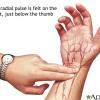
The Pulse of Gravity
Source Institutions
In this astronomy activity (page 3 of the PDF), learners will examine the effects of gravity on a person’s pulse and explore how gravity can differ from planet to planet.
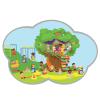
Design For All: Project Playground
Source Institutions
In this design challenge, learners will practice empathy and design thinking skills by creating a play space that is fun, both for themselves and other kids.
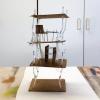
Engineering For Earthquakes
Source Institutions
In this design challenge, learners will engineer a structure and see if it can survive an earthquake they create.

Your Age on Other Worlds
Source Institutions
Did you know that you would be a different age if you lived on Mars? It's true!

Design For All: Imagining Inventions
Source Institutions
In this design challenge, learners will practice empathy and design thinking skills by creating an invention of the future.

Setting the Scene
Source Institutions
In this activity (on page 2), pairs of learners create an imaginary crime scene. One person leaves the room while the other person moves a few things around.

False Memories
Source Institutions
Use this activity (10th on the page) to help learners explore memory and how sometimes your brain makes up its own memories. Learners will read and try to remember the words in list #1.

Citizen Science at Home
Source Institutions
In this activity, learners will be introduced to citizen science projects that can be done from home.

Waterproof Hanky
Source Institutions
In this physics demonstration, learners will be surprised when a handkerchief holds water in an upside-down glass.
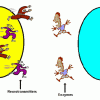
Synaptic Tag
Source Institutions
In this outdoor activity, learners review the parts of the synapse and their functions by playing a game.

A Cubic Foot Per Second
Source Institutions
In this activity, learners measure and calculate the amount of cubic feet various containers contain. Next, learners investigate cubic feet per second (cps), by carrying jugs in one second.

Whose Fault Is It?
Source Institutions
In this seismic simulation, learners play a "who-dunnit" game to explore earthquakes.

Arctic Sea Ice
Source Institutions
In this activity, learners explore how the area of Arctic sea ice has changed over recent years. First, learners graph the area of Arctic sea ice over time from 1979 to 2007.
Let's Count Humpback Whales: Environmental Effects on Population
Source Institutions
In this activity, learners use whale count data from the Hawaiian Islands Humpback Whale National Marine Sanctuary to compare whale counts in relation to environmental factors.

Engineered Sports
Source Institutions
In this activity, learners explore the concept of how aerospace engineering has impacted sports, specifically exploring the design of golf balls.
